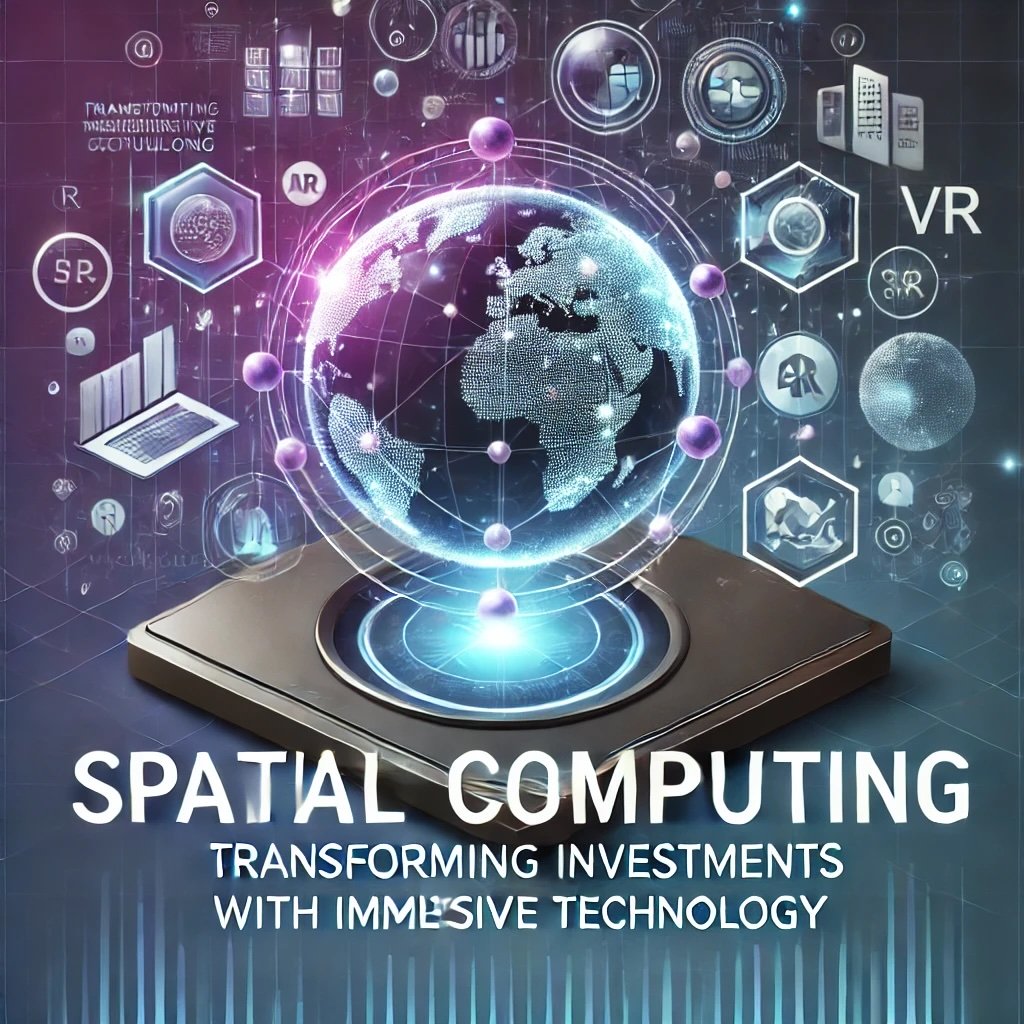Spatial Computing: Transforming Investments with Immersive Technology
The fusion of digital and physical worlds is no longer the stuff of science fiction. Spatial computing—a blend of augmented reality (AR), virtual reality (VR), and 3D mapping—offers investors a dynamic new frontier. It promises not just to change how we work, play, and engage with our environment but also to transform business operations and customer experiences fundamentally. For investors, this isn’t just a trend to watch; it’s an opportunity to act.
What is Spatial Computing?
At its core, spatial computing integrates digital elements into physical spaces, creating interactive, immersive experiences. By 2028, 20% of people are expected to engage with immersive, location-based content weekly—an exponential leap from today’s less than 1%. The implications for industries are profound:
- Healthcare: Simulated training environments using virtual patients.
- Manufacturing: Digital twins enable efficient, safer operations.
- Retail: Immersive shopping where customers can “try before they buy.”
- Entertainment: Virtual concerts and interactive navigation tools.
These real-world applications illustrate how spatial computing bridges the gap between virtual potential and tangible impact.
Market Momentum
The global spatial computing market, valued at $97.9 billion in 2023, is projected to soar to $280.5 billion by 2028, boasting a compound annual growth rate (CAGR) of 23.4%. Europe leads the charge, with the UK’s market alone expected to expand at 18.4% CAGR through 2030, contributing to the $1.5 trillion economic boost forecasted by PwC.
Such rapid growth is underpinned by the technology’s ability to deliver measurable business outcomes. Deloitte predicts 80% of top enterprises will adopt spatial computing by 2030, with industries like logistics and smart manufacturing already reporting up to a 40% productivity boost.
Challenges for Investors
Despite its promise, spatial computing presents hurdles that warrant careful consideration:
- High Initial Costs: From hardware investments (e.g., head-mounted displays) to asset digitization, the financial entry barrier is steep.
- Data Privacy: Immersive technologies rely heavily on data collection, raising regulatory and ethical challenges.
- Fragmentation: A lack of interoperability among applications slows scalability and market cohesion.
- Hardware Limitations: Bulky, uncomfortable devices and limited battery life deter widespread adoption.
The biggest challenge? Spatial computing still lacks a flagship use case that solves a clear, quantifiable problem—a crucial factor for driving mainstream adoption and scalable monetisation.
How Beyond Can Help
At Beyond, we specialise in guiding investors through the complexities of emerging technologies like spatial computing. Our expertise includes:
- IP Assessment: Identifying defensible technologies that offer a sustainable competitive edge.
- Team Capability Analysis: Evaluating whether leadership teams have the expertise to scale and innovate.
- Competitive Benchmarking: Understanding global market dynamics to uncover hidden opportunities.
- Scalability Reviews: Ensuring technical architectures support long-term investment goals.
- Strategic Differentiation: Helping companies carve a niche in an increasingly crowded space.
While industry giants like Meta and NVIDIA dominate the headlines, nimble startups are redefining niches and delivering exponential growth opportunities. Companies like PixelMax (immersive workspaces), The Boundary (architectural visualisation), and Proprio Vision (healthcare imaging) exemplify the innovation potential outside the mainstream spotlight.
Seize the Spatial Computing Opportunity
The spatial computing market is evolving rapidly, creating immense potential for investors who navigate its complexities with precision. At Beyond, we empower investors to identify high-growth opportunities while mitigating risks.
Explore how spatial computing is transforming industries and discover actionable insights to make informed investment decisions.
Ready to uncover the full picture?
Visit us at Beyond-MA.com.




